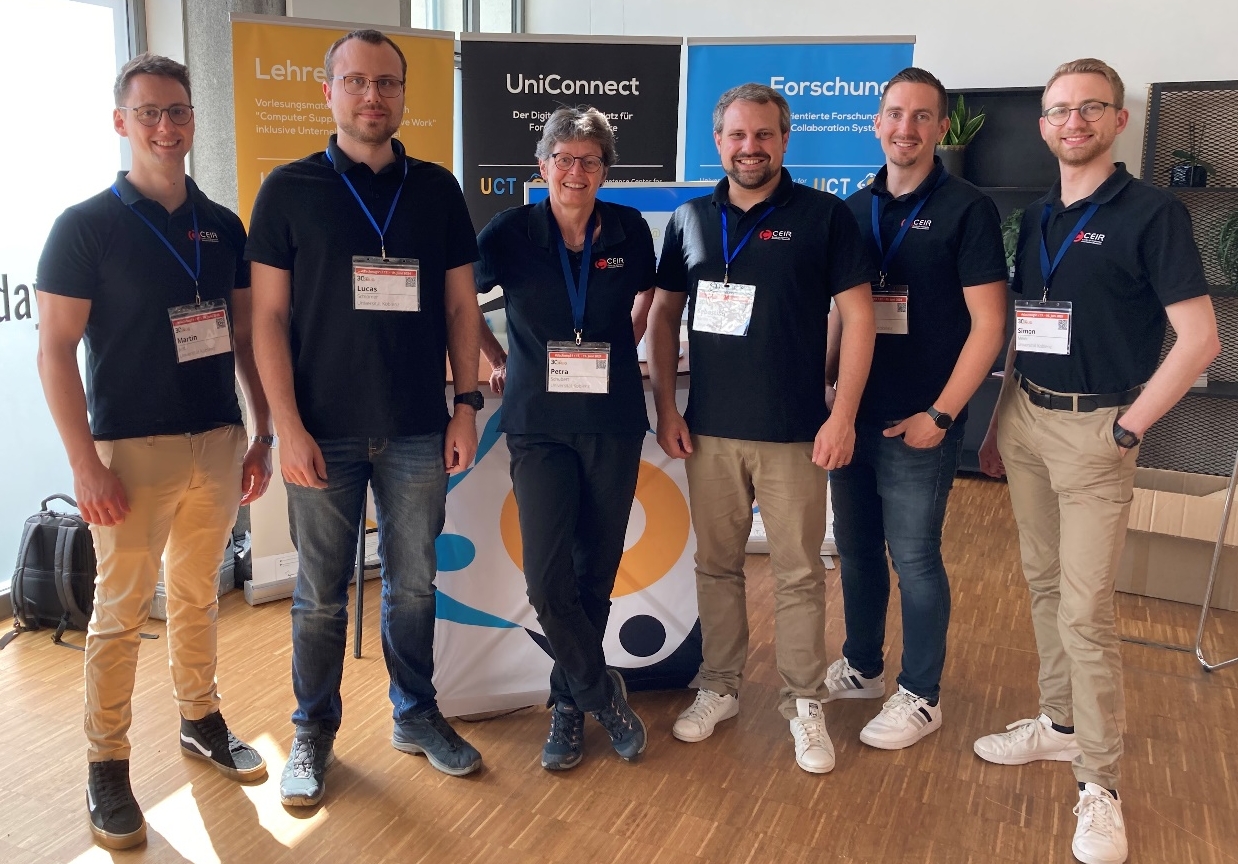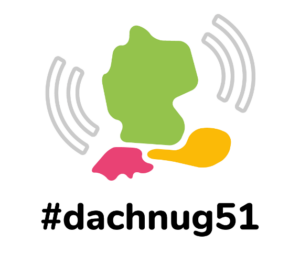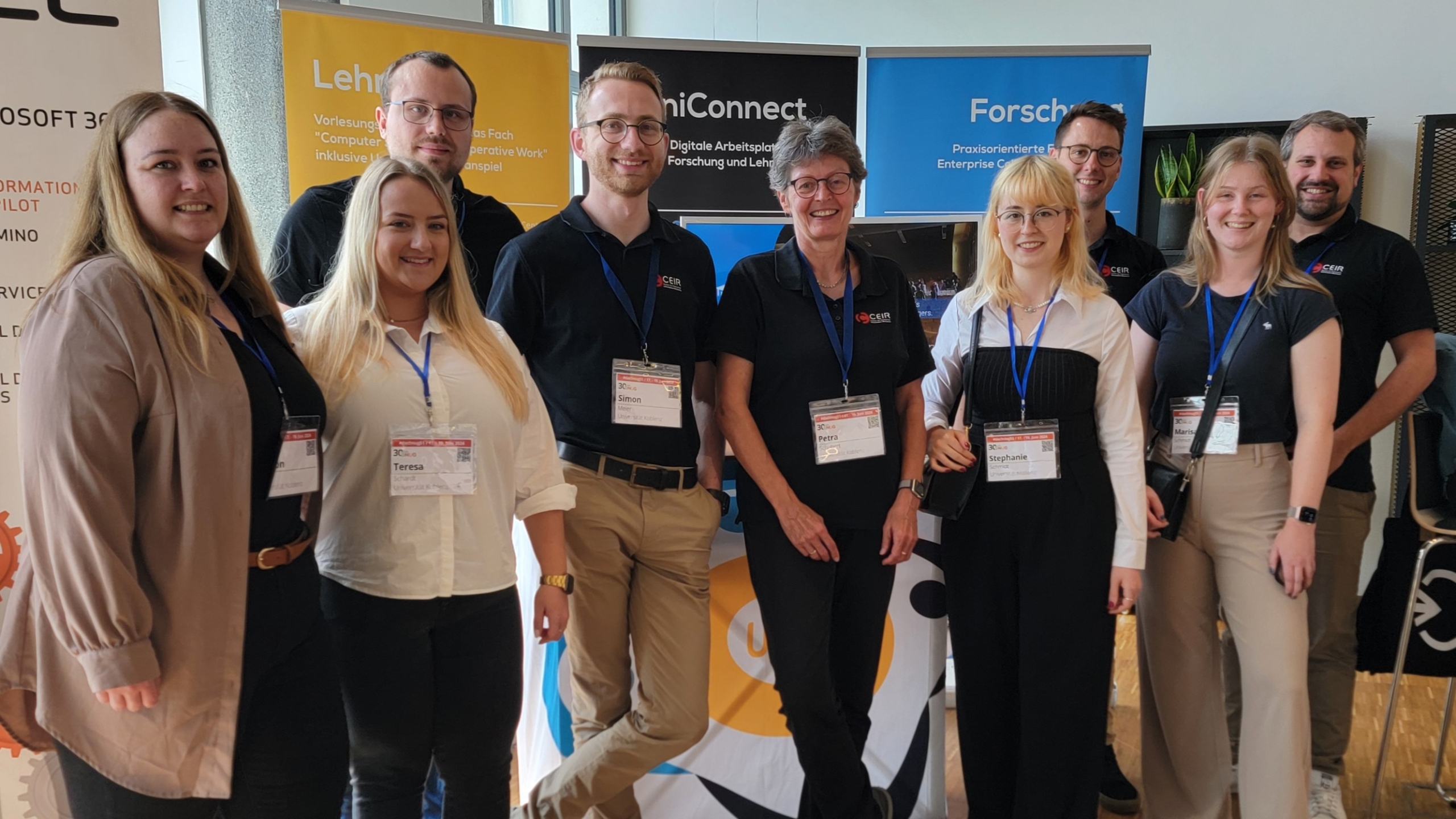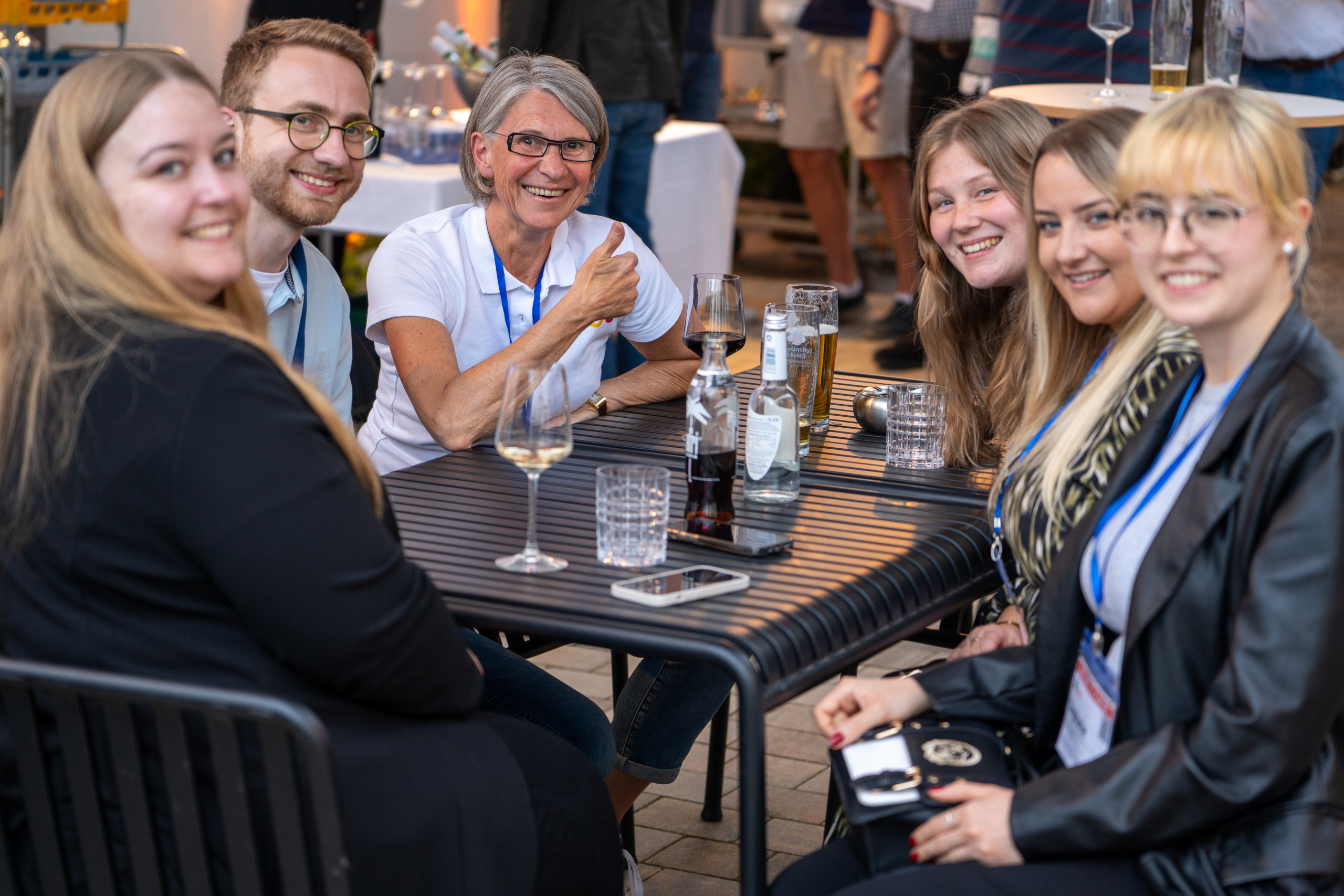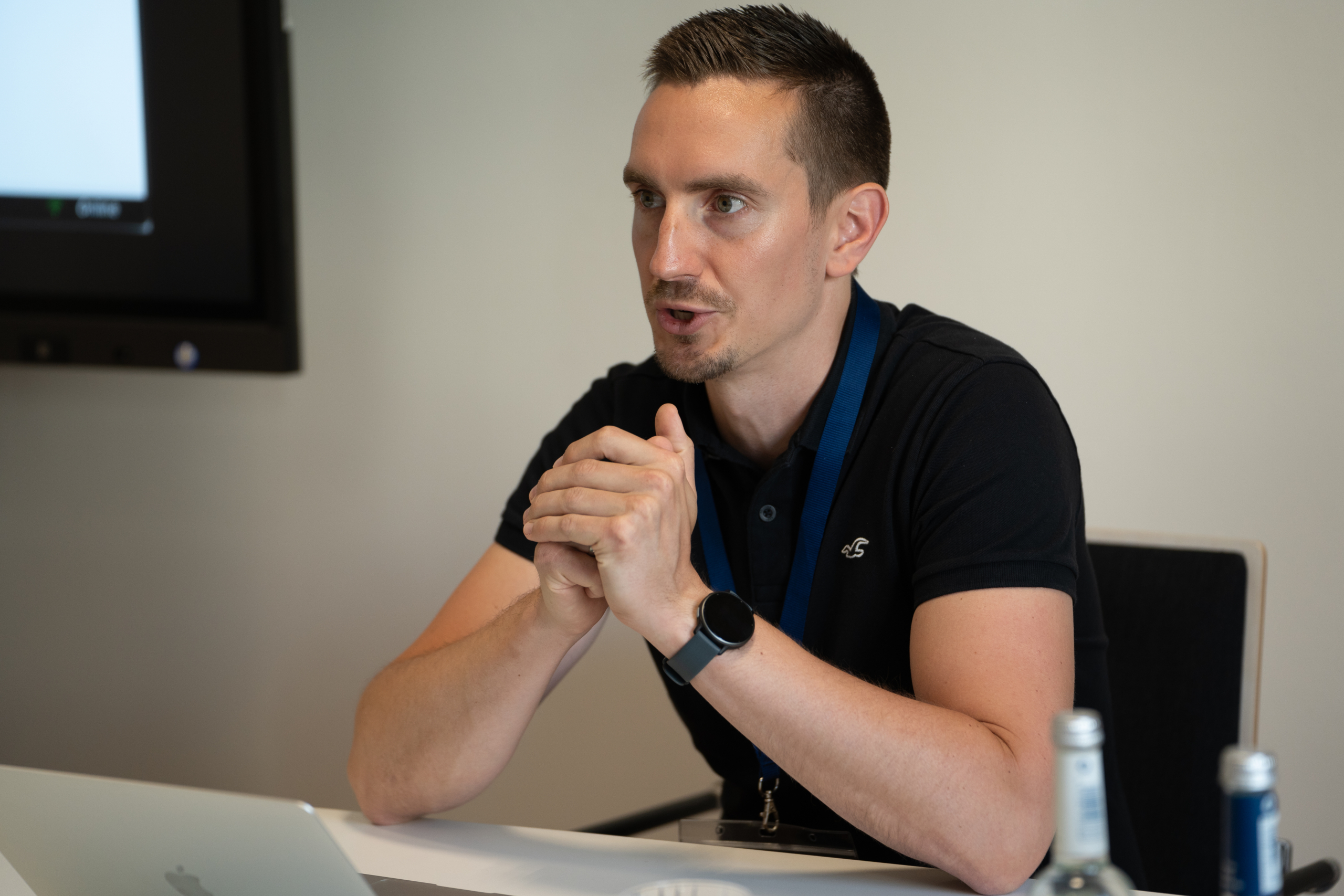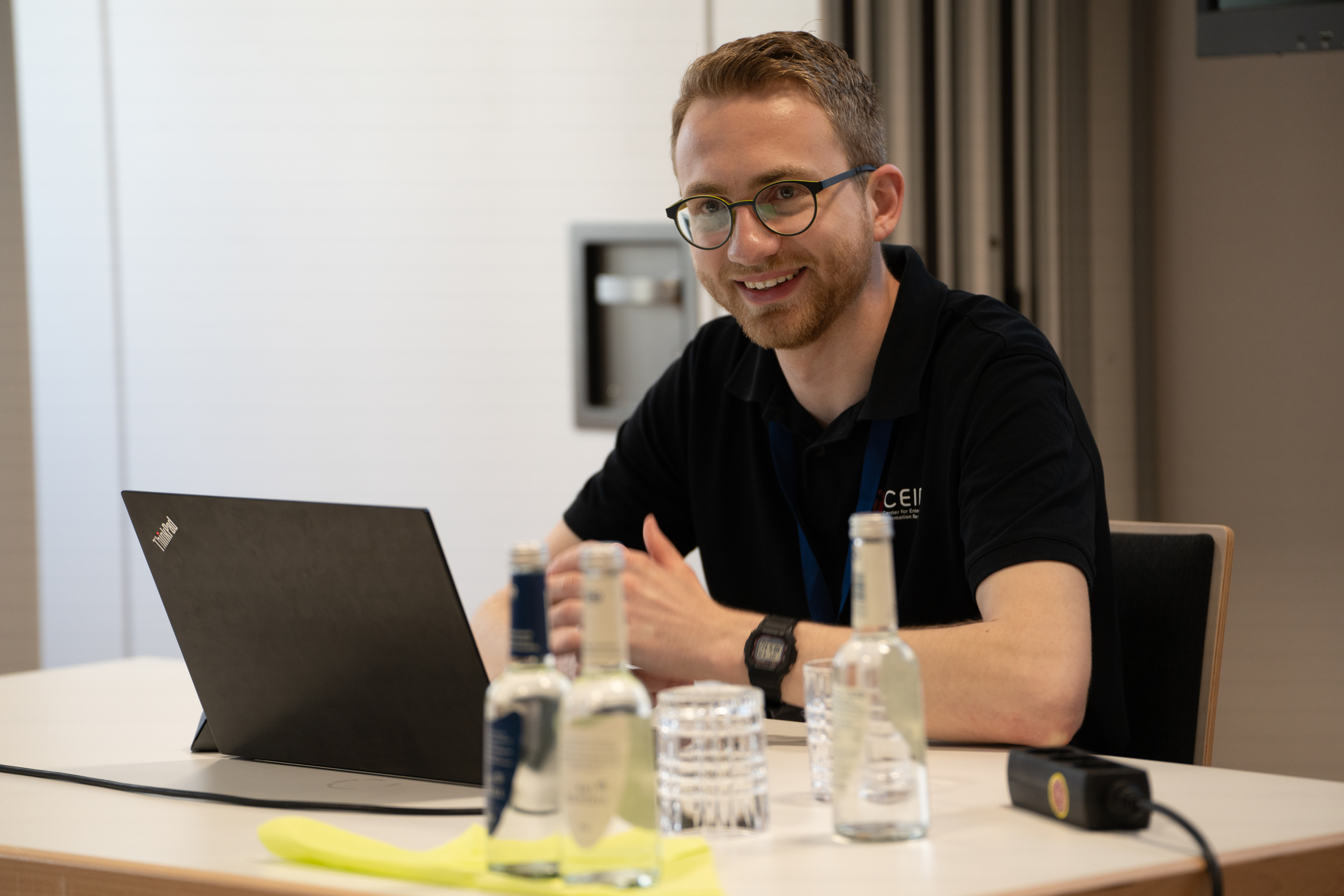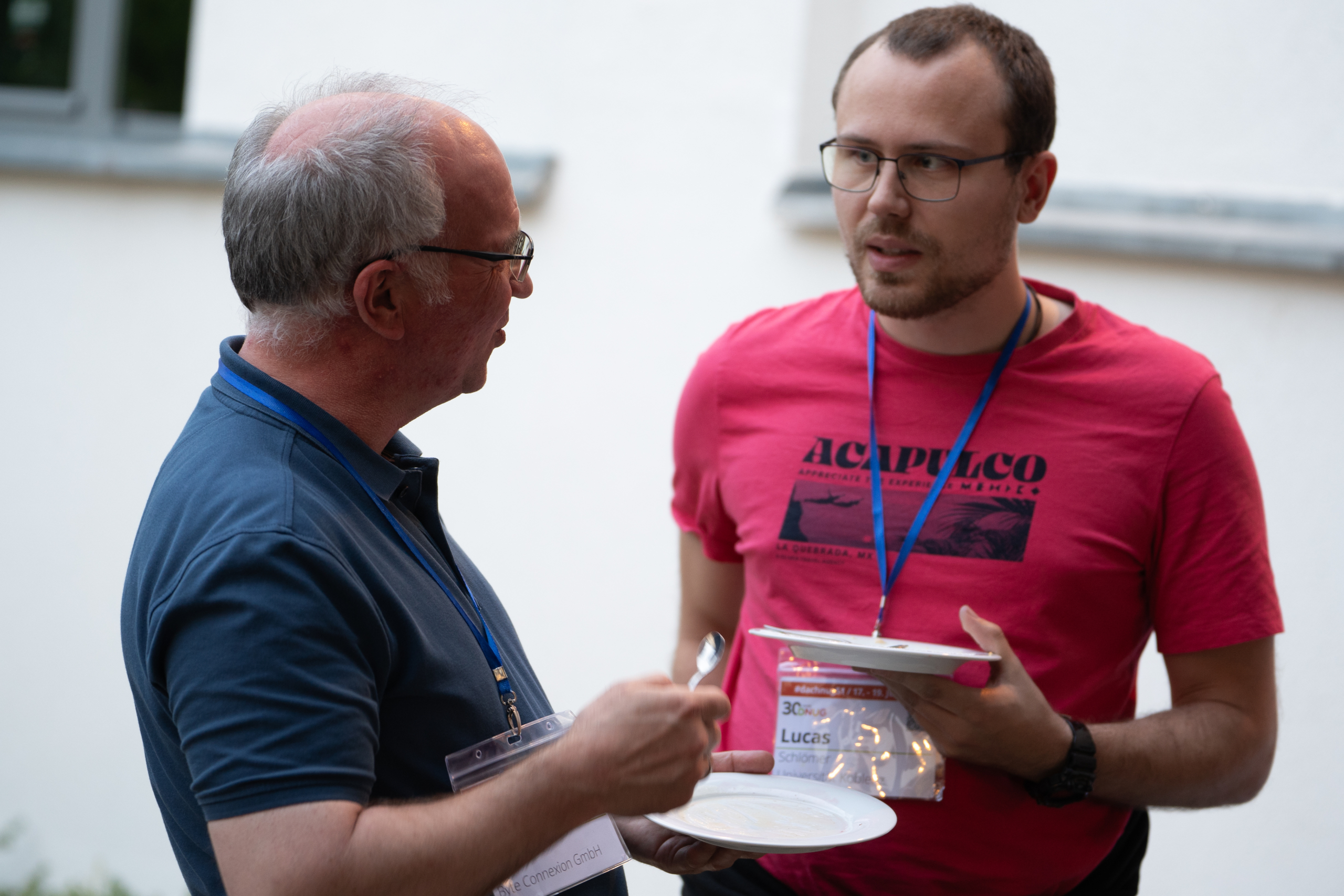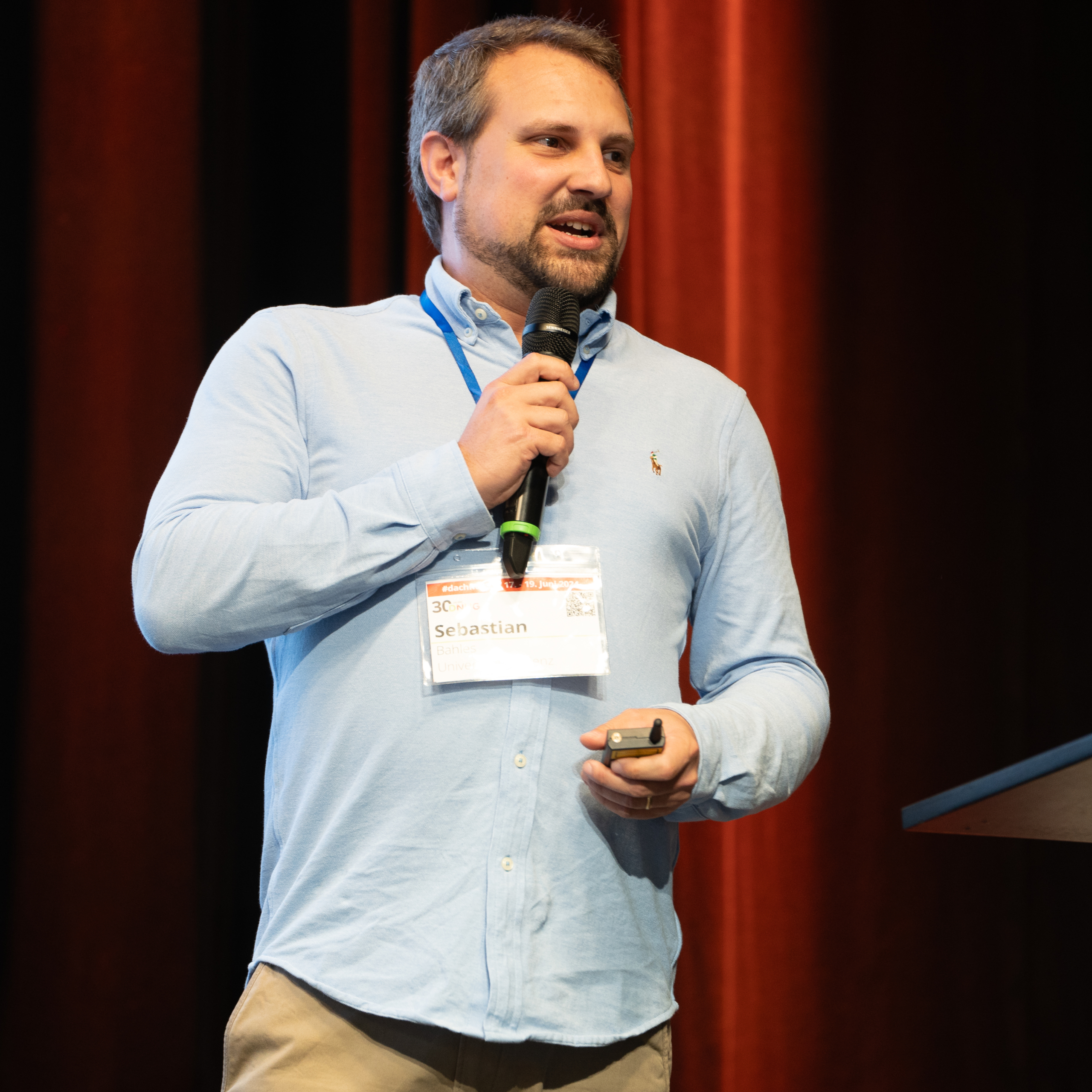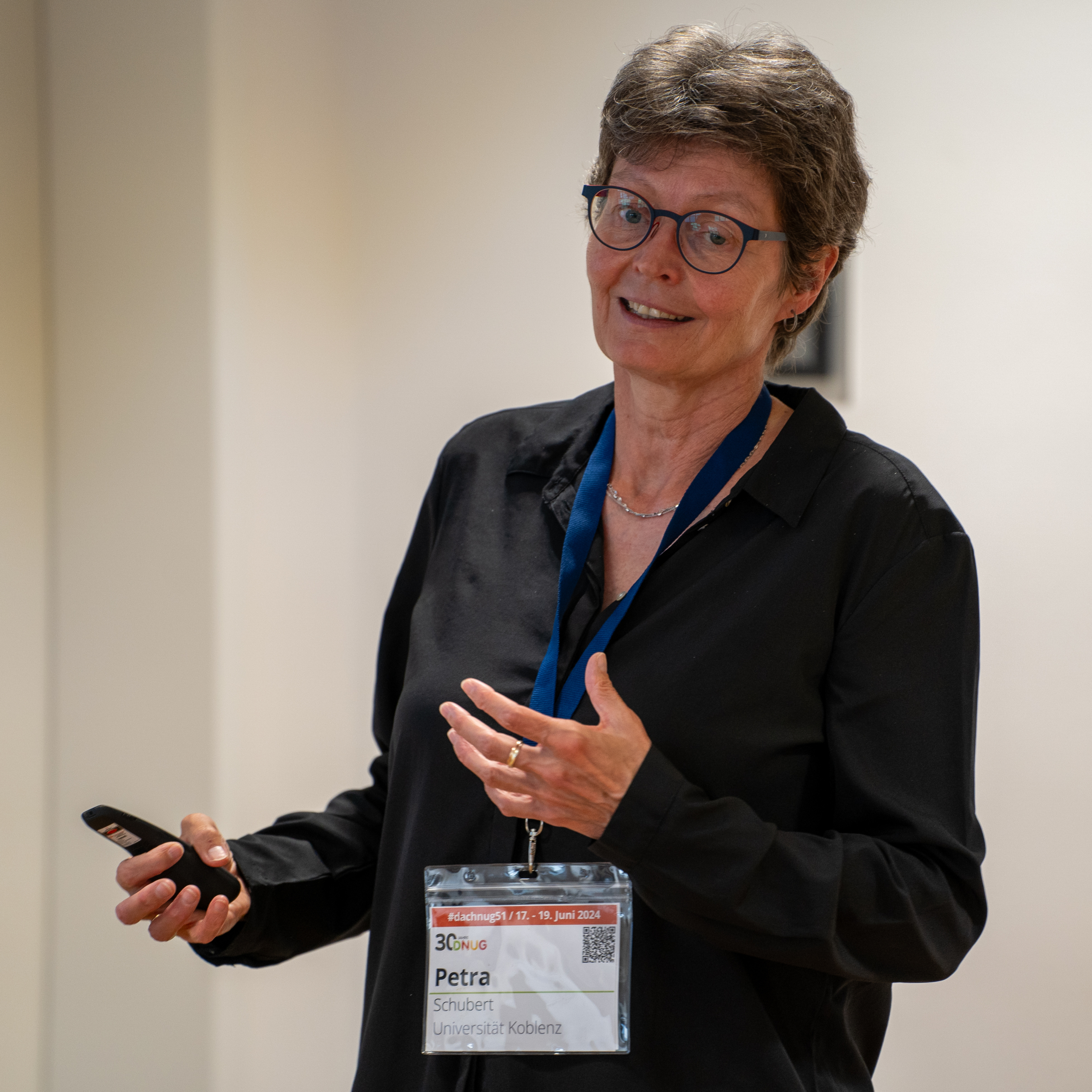CEIR – UCT as conference partner at #DACHNUG51
The 51st DACHNUG took place this year from June 17 to 19 in the beautiful Marinaforum in Regensburg. As a conference for users and providers of HCL software solutions (in the field of enterprise collaboration and no-code/low-code/pro-code application development), it was the ideal place for us to be represented again this year with the CEIR team and our HCL-sponsored University Competence Center for Collaboration Technologies (UCT).
As a regular conference partner of DACHNUG, we were able to present our research and projects in a number of presentations – in which some of the companies attending the conference were also involved – and to exchange ideas with interested parties at our booth.
This year, university students once again accompanied the CEIR team.The four winners of the Enterprise Collaboration Challenge, a business simulation game from the course on “Computer Supported Cooperative Work” (CSCW), were invited to DACHNUG. The winning team, consisting of four computer visualistics students, was able to gather interesting impressions of providers, user companies and topics relating to the technologies presented at the conference in workshops, presentations and discussions.
The first day of the conference started with a diverse selection of workshops in which technologies and software from HCL such as Domino Leap, Volt MX and BigFix were presented and there was the opportunity to test them out in small scenarios.
On the second day of the conference, the DACHNUG programme was officially opened and the UCT was able to introduce itself to the auditorium as a conference partner after the keynotes. A presentation by Sebastian Bahles and Petra Schubert in a separate session to introduce the conference partners deepened the insights into the work of the UCT and the CEIR team and gave an overview of the current topics from research, teaching and development projects.
On the third and final day of the conference, the CEIR team was able to dive deeper into these topics in three further presentations and present exciting insights and examples to the audience:
- Simon Meier gave insights into how we use a self-developed Domino application for interactive university courses, in which we provide students with new work packages on a weekly basis and check fully automatically whether the tasks have been successfully completed in the ERP system and the collaboration system. In the presentation, he not only gave deep insights into the use of the Enterprise Challenge, but also into its implementation.
- In his presentation, Julian Mosen presented the latest findings from a long-term study analysing the processes, practices and problems of meetings. To this end, a (diary) app was developed using Volt MX and HCL Domino, with which the participants in the long-term study record the meetings they have held. Both, the technical aspects of using a Domino NSF as a database and the use of the app from the user’s perspective, were discussed.
- Martin Just and Lucas Schlömer delved into the world of collaboration analytics in their presentation. They showed how ontology-based data access and Neo4j can be used to harmonise data and make it easily accessible. This makes it possible to analyse collaboration that is otherwise very unstructured and spans multiple collaboration systems. In a live demo, a current prototype with data from an HCL Connections instance was presented and possible applications were shown. For example, the characteristics of workspaces in HCL Connections were visualised.
The last day of the conference ended with an “Ask HCL session”, where the conference participants were able to ask the HCL representatives questions about the various products. The combination of a beautiful conference location, a good range of presentations and a great community of users, participants and partners resulted in an exciting exchange and a successful conference.

